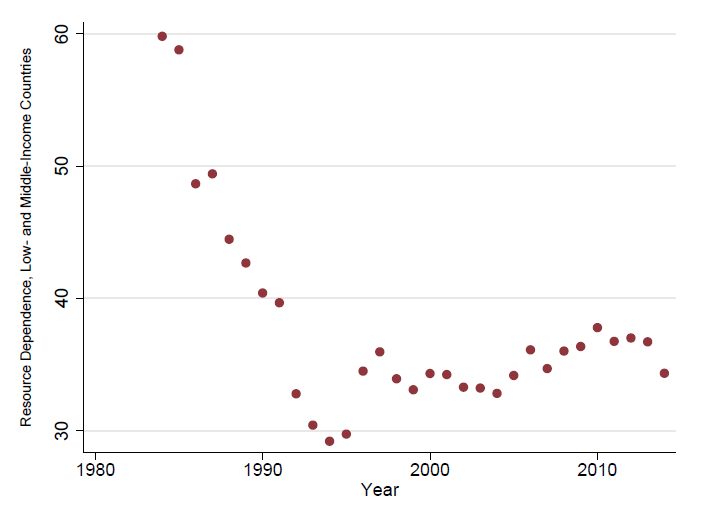Weak Property Rights and Resource Dependency in the Global South
(Latest version here: https://www.freit.org/WorkingPapers/Papers/TradePatterns/FREIT1735.pdf)
Abstract: This paper examines the role of property rights in driving a recent puzzling surge in low- and middle-income country export shares of resource-based products. The paper shows theoretically, and empirically, weaker property rights can lead to increased export shares of resource-based products to all other countries, including even those with equally weak property rights.
Resource Dependency in the Global South over time. Notice the trend reversal since the mid-1990s.
The theoretical model incorporates property rights into the many-country continuum-of-goods model in Romalis (AER, 2004) and augments the supply side with a unique two-tiered production structure that makes factor supplies endogenous. Doing so allows us to explicitly relate property-right imperfections to endogenous resource supplies in general equilibrium. Property-right imperfections lead to an underpriced resource base. An inefficient oversupply of resource-based products ensues. The resulting lower relative prices increases the export shares of resource-based goods to countries that have better property rights (the “North”) through inter-industry trade, and also to countries that have just as weak property rights (the "South") through intra-industry trade.
The model’s testable predictions find strong empirical support both in country-level and product-level panels. The evidence is robust to accounting for the potential endogeneity of property rights.

